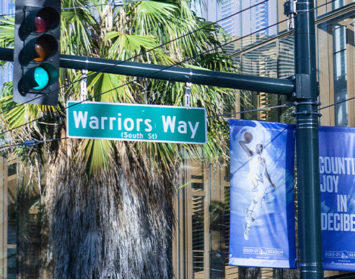Many friends of mine, including those closest to me, are attorneys. And, a majority of my clients also are members of the legal profession. So, today’s topic is a dicey one for me personally; nevertheless, an important one that needs to be addressed.
All of us, even our lawyer friends, like a good attorney joke now and then. But the fact of the matter is attorneys aren’t funny at all when they fail to understand the roles they should play in real estate transactions.
For too many attorneys nowadays, it’s a problem where personal ego collides with outright ignorance. No, Virginia, lawyers don’t learn everything there is to know in three years of law school. The fact that some of them think so has created myriad problems and transaction disasters. Ill-prepared attorneys, despite their State Bar card, have no more business advising clients on real estate matters than we do looking for Osama bin Laden in Bird Rock. It’s that futile of an effort.
Even if I were to stipulate that their legal training was broader than it is, the fact remains there are professions and lines of work where being “book smart” is not as valuable as being “street smart.” Commercial real estate is a street-smart business. No room here for bookish nerds or those who relish “It-oughta-be” theories and perfect-world scenarios.
A common case in point: An office tenant and his or her broker conclude a long and complex series of negotiations on office space. Now, the lease documents are ready to be executed. The client submits the documentation to his or her attorney for a review to make sure all is in order and the client is protected legally. Despite not having that much, if any real estate law experience, the attorney begins to wordsmith the standard time- and court-tested legal documents and even to question the business terms and conditions of the lease. All too often, the attorney begins to second-guess whether the deal was “market-rate” or excessive. While scrutiny to some degree is important, there needs to be a balance between added legal value and the fees being charged by the attorney. Savvy lawyers who understand real estate law know that.
In fact, excessive scrutiny can often derail what otherwise is a solid win-win transaction. I can think of a recent situation in which one of our clients submitted to his attorney a transaction I had negotiated on his behalf for a full floor of office space. The attorney began to second-guess the details and almost killed the deal before we were able to rescue the transaction. By then, nearly six weeks of lost time was incurred – time that would have been included in free rent for my client. What’s ironic is that we later found out that the attorney’s own law firm — using a competing broker — had signed a letter of intent to lease a similar amount of floor space for 30 percent more than what I had negotiated for his and my client. And, he was questioning our deal!
I need to say that good real estate lawyers do provide relevant and helpful input on leases being transacted. The problem lies with those attorneys, many of whom are fairly new practitioners, who are not seasoned in real estate law — who nevertheless show up in far too many leasing transactions. Some of the problem attorneys I’m referring to were playing Pac Man on their Ataris when I started out in the business nearly 20 years ago.
Excessive meddling is even impacting the use of electronic leasing forms, once heralded for their simplicity and brevity. All too often nowadays, bored attorneys from both sides of a transaction are quick to red-line documents with minute and useless changes – as if they are trying to upstage one another which, of course, attorneys would never do, I’m told. The effect of all this has been the loss of whatever advantages there were for electronic forms.
Once again, let me be perfectly clear. There is a proper role for attorneys to play on behalf of their clients in real estate transactions. Once again, attorneys who specialize in real estate law know that role and play it well. Even better: attorneys who specialize in leases or purchase and sale documents are even better equipped to serve their clients meaningfully. The best-case scenario includes attorneys who are locally based and who know the gives and takes in local leasing transactions and that there is a difference between concessions given to a 5,000-square-foot client and one who is leasing ten times that amount of space.
A word of advice: Resist mightily all others who add “Esquire” to their signatures.
Jason Hughes is founder of Hughes Marino, an award-winning commercial real estate company with offices across the nation. A pioneer in the field of tenant representation, Jason has exclusively represented tenants and buyers for more than 30 years. Contact Jason at 1-844-662-6635 or jason@hughesmarino.com to learn more.









